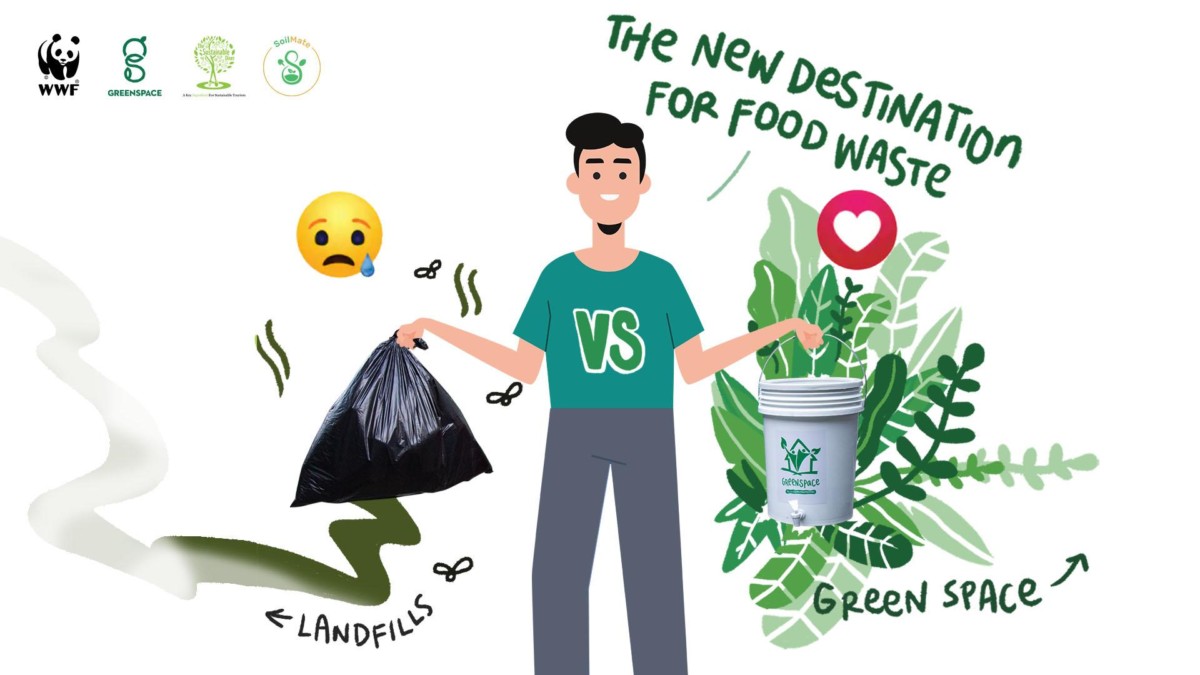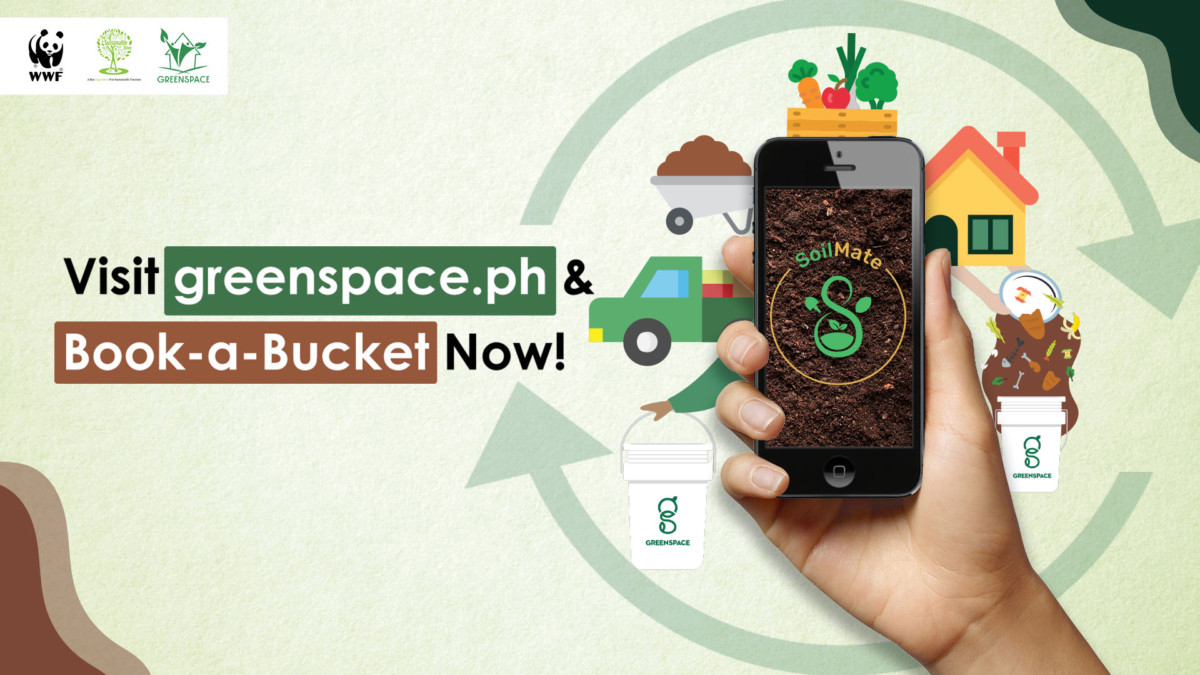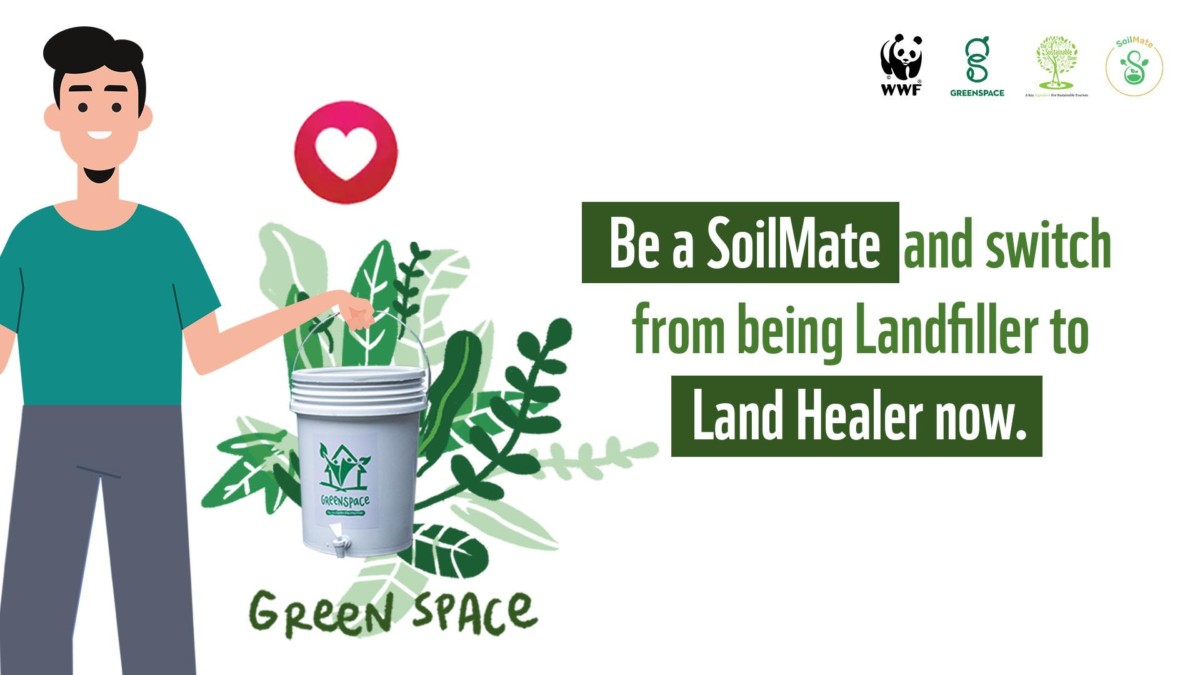Be a #SoilMate! Turn Your Food Waste into Healthy Soil
February 2021
What is Composting and Why is It Important?
Have you thought of how much potential there is in a banana peel? Considering the time, natural resources, and effort that went into growing the banana, will it just end up as waste? Could that humble peel serve a greater purpose?
In Metro Manila alone, 2,175 tons of food waste are generated daily. Globally, 1/3 of all food produced never reaches our plates. These millions of tons of food waste from the landfill could be returned to the soil as compost. That way, it can be used to help regenerate the earth to grow more food.
Composting is the natural process of decomposing organic matter with the use of microorganisms under controlled conditions. Composting speeds up natural processes by providing an ideal environment for bacteria, fungi, and other decomposing organisms to do their work. With the right ingredients and the right environment, composting creates an essential and extremely valuable component to healthy soil, which is the compost itself - a rich source of organic matter that improves soil health, which in turn, improves the quality of your plants.
Benefits of Composting
- Reduces waste and greenhouse gas emissions
- Recycles essential nutrients back into the soil
- Strengthens soil and promotes healthy plant growth
- Saves money and conserves our environment

Types of Composting: Do What’s Most Suitable for You
Composting can be done in a variety of ways. How you compost depends on how much space you have on hand, the amount and kind of food waste generated, and the amount of time you are willing to spend on the composting process. Check out the following composting methods and find what best suits you.
1. Direct Composting
Direct composting in your backyard is simple – you bury your organic waste in garden soil, where it decomposes into rich compost.
You may check out this link to know the details of direct composting.
2. Composting Pile
There are as many ways to make a compost pile. You can create a free-standing compost heap (preferably out of sight to keep stray animals away). Another option is to build your own bin out of recycled wooden pallets or wire-mesh fencing.
You can create your own compost pile by layering and balancing organic materials from yard waste and leftover food - just avoid adding meat and greasy ingredients. Mix your pile with a couple of shovelfuls of topsoil or compost for the needed microorganisms to work on the decomposition process. Learn more here.
3. Vermicomposting
Vermicomposting is the process of making compost using worms, such as African Night Crawlers or Red Wigglers. They feed on organic waste materials and excrete vermicasts that are rich in nitrates and minerals that can be used as compost and soil quality enhancers. Read more about vermicomposting via this link.
4. Bokashi Composting
Bokashi is a Japanese term that means fermented organic matter. It undergoes an anaerobic process that relies on the beneficial microbes in the Bokashi bran that speed up the fermentation. In Bokashi Composting, all kinds of food scraps and kitchen wastes including meat and dairy products can be added in the tight-lid bucket while mixed or layered with the bran. When the bucket is full, it is sealed and kept shut for 2 weeks. Afterward, the fermented food waste will be buried in soil for the soil microbes to finish the decomposition process. After 4 weeks in the soil, the compost can now be planted on or harvested.
Check out https://greenspace.ph/ and see if Bokashi Composting suits you best!
With composting, we can strive to reduce the food waste that winds up in landfills and incinerators, and rebuild our local economies in support of the community, our better health, and the sustainability of our communities. Don’t be a Landfiller - be a Land Healer instead!
Be a SoilMate and turn your Food Waste into healthy soil through composting and see the wonders it can make to regenerate our Earth.
Visit our website for more sustainable dining tips and watch out for our next events on our WWF-Philippines Facebook page.
The Sustainable Diner and SoilMate Project Team:
Melody Melo-Rijk, Monique Mahusay, Jonna Ellaine Jordan, Lorayne Therese Roque, Alexa Jeanne Lasch, Iris Joy Abrigo, Jenette Callada, Liezl Stuart del Rosario, Kristan Gabriel Villalon, Rina Papio, Danyelle Papio
For more information, please contact:
Monique Mahusay
SoilMate Project Coordinator
mmahusay@wwf.org.ph
Jonna Ellaine Jordan
Integrated Marketing Communication Specialist
jjordan@wwf.org.ph
Lorayne Therese Roque
Sustainable Consumer Specialist
lroque@wwf.org.ph


